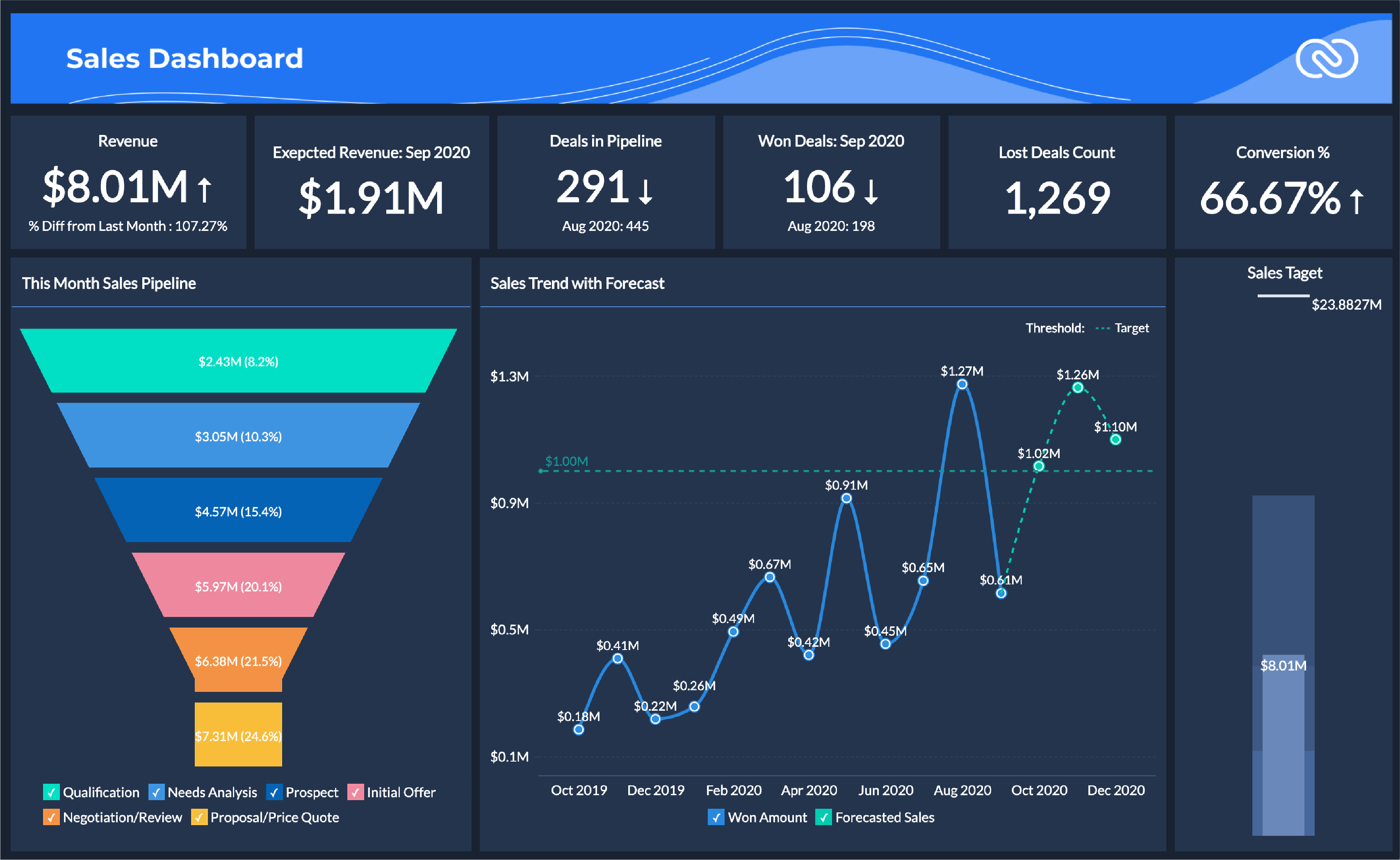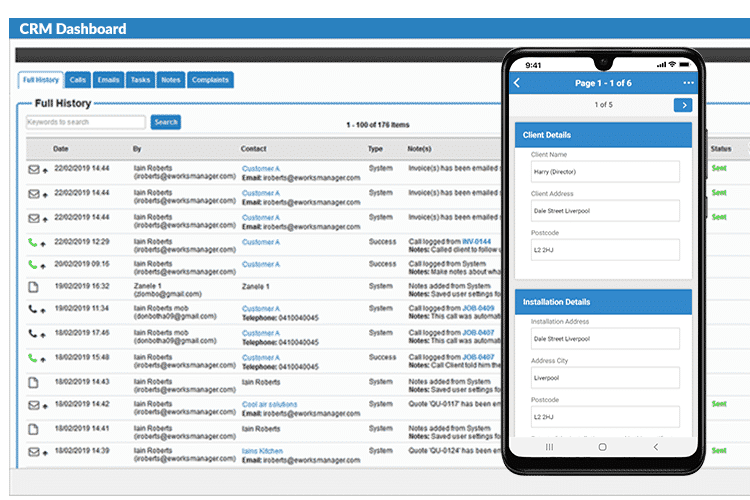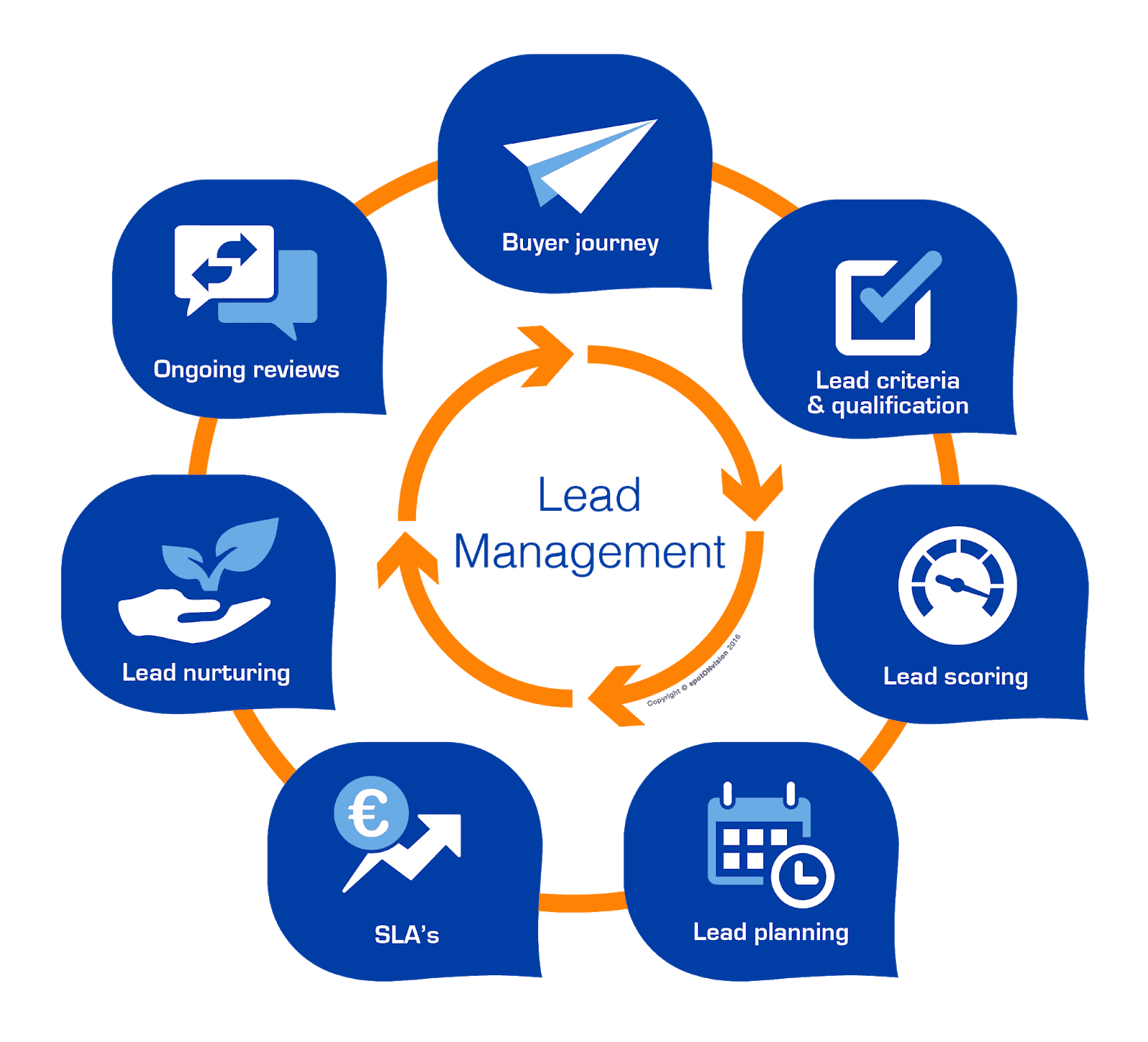CRM software for lead management has become an indispensable tool for businesses of all sizes, offering a comprehensive approach to managing potential customers from initial contact to conversion. By streamlining and automating lead nurturing, qualification, and follow-up processes, CRM software empowers sales teams to optimize their efforts and drive revenue growth.
This guide delves into the multifaceted world of CRM software for lead management, exploring its key features, implementation strategies, and best practices for maximizing its potential. From understanding the fundamentals to navigating the intricacies of lead nurturing and data analysis, this comprehensive resource provides insights and practical advice to help businesses leverage CRM software effectively for lead management success.
Introduction to CRM Software for Lead Management
CRM software, or Customer Relationship Management software, is a powerful tool for businesses of all sizes to manage and nurture their customer relationships. It encompasses a wide range of functionalities, including lead management, sales automation, marketing automation, customer support, and more.
When it comes to lead management, CRM software plays a crucial role in streamlining the process of identifying, capturing, qualifying, and nurturing potential customers. By centralizing all lead information in one platform, CRM software empowers businesses to efficiently track lead interactions, analyze lead behavior, and make data-driven decisions to convert leads into loyal customers.
Benefits of Using CRM Software for Lead Management
CRM software offers numerous benefits for businesses seeking to improve their lead management strategies. These benefits can be broadly categorized into:
- Increased Efficiency: CRM software automates repetitive tasks, such as lead capture, lead qualification, and communication follow-ups, freeing up sales teams to focus on higher-value activities, like building relationships and closing deals.
- Improved Lead Qualification: CRM software provides insights into lead behavior and engagement, enabling sales teams to prioritize leads based on their likelihood of conversion. This leads to a more focused and targeted approach to sales outreach, maximizing conversion rates.
- Enhanced Communication and Collaboration: CRM software facilitates seamless communication and collaboration among sales teams, marketing teams, and customer support teams. All stakeholders have access to a centralized database of lead information, ensuring everyone is on the same page and working towards common goals.
- Data-Driven Insights: CRM software collects and analyzes lead data, providing valuable insights into lead behavior, campaign performance, and sales trends. These insights empower businesses to optimize their lead management strategies and make informed decisions to improve lead conversion rates.
Types of CRM Software for Lead Management
There are numerous CRM software options available, each catering to specific business needs and industry verticals. Some popular types of CRM software specifically designed for lead management include:
- Small Business CRM: These CRM solutions are designed for small businesses with limited budgets and simple lead management needs. They typically offer basic functionalities, such as lead capture, lead qualification, and basic reporting. Examples include Zoho CRM, HubSpot CRM, and Pipedrive.
- Enterprise CRM: These CRM solutions are designed for large enterprises with complex sales processes and extensive lead management requirements. They offer advanced functionalities, such as lead scoring, lead nurturing, and advanced analytics. Examples include Salesforce, Oracle Siebel, and SAP CRM.
- Industry-Specific CRM: These CRM solutions are tailored to specific industries, such as real estate, healthcare, or financial services. They offer industry-specific functionalities and features that cater to the unique needs of each industry. Examples include Real Estate CRM, Healthcare CRM, and Financial Services CRM.
Key Features of CRM Software for Lead Management
CRM software plays a pivotal role in managing leads effectively. It offers a comprehensive suite of features designed to streamline the lead management process, from capturing leads to nurturing them through the sales funnel.
Lead Capture
Lead capture is the initial stage of the lead management process, where businesses gather information about potential customers. Effective CRM software simplifies lead capture by providing various tools and functionalities.
- Forms: CRM software allows businesses to create customizable forms that can be embedded on websites, landing pages, or social media platforms. These forms capture essential lead information such as name, email address, phone number, and other relevant details.
- Live Chat: Live chat functionality enables businesses to engage with website visitors in real-time. By initiating conversations, businesses can collect lead information and qualify prospects.
- Social Media Integration: CRM software can integrate with social media platforms, allowing businesses to capture leads from social media interactions.
Lead Nurturing, Crm software for lead management
Lead nurturing is a crucial aspect of lead management, involving engaging with leads and providing them with valuable content to build relationships and move them through the sales funnel.
- Email Marketing: CRM software facilitates automated email campaigns, enabling businesses to send targeted emails based on lead behavior and preferences. This helps nurture leads by providing relevant content and offers.
- Workflow Automation: CRM software allows businesses to create automated workflows that trigger specific actions based on lead interactions. For example, a workflow can be set up to send a welcome email to a new lead or a follow-up email after a specific time period.
- Content Management: CRM software can integrate with content management systems (CMS) to provide access to a library of valuable content, such as blog posts, articles, and ebooks, which can be used to nurture leads.
Lead Scoring
Lead scoring is a process of assigning numerical values to leads based on their potential to convert into customers. This helps businesses prioritize leads and allocate resources effectively.
- Customizable Scoring Criteria: CRM software allows businesses to define their own lead scoring criteria based on factors such as demographics, website activity, engagement with marketing materials, and previous interactions.
- Real-Time Scoring: CRM software can update lead scores automatically based on real-time data, providing a dynamic view of lead quality.
- Lead Prioritization: By ranking leads based on their scores, businesses can prioritize their efforts and focus on the most qualified leads.
Lead Qualification
Lead qualification is the process of determining whether a lead meets the criteria to be considered a potential customer.
- Lead Qualification Forms: CRM software allows businesses to create lead qualification forms that capture information relevant to the sales process. This information can be used to assess lead suitability.
- Sales Automation: CRM software can automate the lead qualification process by using pre-defined rules and criteria to identify qualified leads.
- Lead Routing: CRM software can route qualified leads to the appropriate sales representatives based on their expertise and industry.
Comparison of CRM Software Features
Different CRM software solutions offer varying features and functionalities.
| Feature | Salesforce | HubSpot | Zoho CRM |
|---|---|---|---|
| Lead Capture | Web-to-lead forms, landing pages, social media integration | Forms, live chat, social media integration | Forms, live chat, social media integration |
| Lead Nurturing | Email marketing, workflow automation, content management | Email marketing, workflow automation, content management | Email marketing, workflow automation, content management |
| Lead Scoring | Customizable scoring criteria, real-time scoring, lead prioritization | Customizable scoring criteria, real-time scoring, lead prioritization | Customizable scoring criteria, real-time scoring, lead prioritization |
| Lead Qualification | Lead qualification forms, sales automation, lead routing | Lead qualification forms, sales automation, lead routing | Lead qualification forms, sales automation, lead routing |
Implementing CRM Software for Lead Management
Implementing a CRM software solution for lead management is a strategic move that can significantly improve your sales process, boost conversion rates, and enhance customer relationships. It involves a structured approach to ensure successful integration and adoption within your organization.
Steps Involved in Implementing CRM Software
Implementing a CRM software solution requires a well-defined plan and careful execution. The following steps Artikel a typical implementation process:
- Define Your Requirements: Clearly identify your specific needs and goals for lead management. This includes understanding your target audience, lead generation strategies, sales process, and desired outcomes.
- Select the Right CRM Software: Thoroughly research and evaluate different CRM solutions based on your requirements, budget, and technical capabilities. Consider factors like features, scalability, integrations, user-friendliness, and vendor support.
- Data Migration: Transfer existing customer and lead data from your current systems to the new CRM platform. Ensure data accuracy and consistency during this process.
- Customize and Configure: Tailor the CRM software to match your specific workflows and processes. Configure fields, forms, automation rules, and reporting dashboards to optimize lead management.
- User Training: Provide comprehensive training to your sales and marketing teams on how to effectively use the CRM software. This includes hands-on practice and ongoing support.
- Integration with Existing Systems: Connect the CRM software with your existing marketing automation, email marketing, and other relevant tools to streamline data flow and automate tasks.
- Go Live and Monitor: Launch the CRM software and closely monitor its performance. Track key metrics, gather user feedback, and make adjustments as needed to ensure optimal results.
Checklist for Successful CRM Implementation
A comprehensive checklist can guide you through the implementation process and help you avoid common pitfalls. Consider these essential considerations:
- Executive Buy-in: Secure commitment and support from key stakeholders within your organization.
- Clear Goals and Objectives: Define specific, measurable, achievable, relevant, and time-bound (SMART) goals for CRM implementation.
- Data Quality: Ensure accurate and consistent data is migrated to the CRM system.
- User Adoption: Promote user engagement and encourage team members to actively use the CRM software.
- Process Optimization: Align the CRM software with your existing sales and marketing processes for seamless integration.
- Regular Monitoring and Reporting: Track key performance indicators (KPIs) and generate reports to measure the impact of CRM implementation.
- Ongoing Support and Maintenance: Establish a plan for ongoing support, updates, and maintenance to ensure the CRM software remains effective.
Integrating CRM Software with Existing Marketing and Sales Processes
Successful CRM implementation requires seamless integration with your existing marketing and sales processes. This ensures data consistency, automation, and improved efficiency:
- Lead Capture and Qualification: Integrate lead capture forms on your website, landing pages, and other marketing channels directly into the CRM system. This automates the process of capturing lead information and qualifying leads based on pre-defined criteria.
- Lead Nurturing and Communication: Use the CRM software to nurture leads through personalized email campaigns, targeted content, and automated follow-up sequences. This helps build relationships and move leads through the sales funnel.
- Sales Pipeline Management: Track the progress of leads through the sales pipeline using the CRM software. This includes assigning leads to sales representatives, managing communication, and monitoring deal progress.
- Reporting and Analytics: Generate reports and dashboards to track key metrics, analyze sales performance, and identify areas for improvement. This provides valuable insights for optimizing your lead management strategies.
Using CRM Software for Lead Nurturing and Automation

Lead nurturing is a crucial aspect of lead management, as it helps build relationships with potential customers and guide them through the sales funnel. CRM software plays a vital role in automating and optimizing lead nurturing strategies.
Benefits of Lead Nurturing with CRM Software
Lead nurturing campaigns can be customized to cater to different segments of your audience. By segmenting leads based on their interests, behaviors, and demographics, you can deliver personalized messages and content that resonate with each group. This targeted approach increases engagement and conversion rates.
Sample Lead Nurturing Campaign
- Welcome Email: Upon signing up for your newsletter or downloading a resource, send a personalized welcome email introducing your company and offering valuable content relevant to their interests.
- Product/Service Updates: Regularly update leads on new product releases, features, or promotions. This keeps them informed and engaged with your brand.
- Educational Content: Share informative blog posts, webinars, or case studies that address common pain points or provide insights relevant to their industry.
- Call to Action: Include clear and concise calls to action (CTAs) in your nurturing emails, encouraging leads to schedule a demo, download a white paper, or visit your website.
- Automated Follow-Ups: Set up automated email sequences to follow up with leads who haven’t interacted with your recent content. This helps maintain engagement and keep them moving through the sales funnel.
Automation Features for Streamlining Lead Management
CRM software offers a range of automation features that streamline lead management processes, saving time and resources. These features include:
- Automated Email Sequences: Create predefined email sequences triggered by specific actions, such as website visits, form submissions, or email opens. This ensures timely and relevant communication with leads.
- Lead Scoring: Assign points to leads based on their actions and interactions, allowing you to prioritize those most likely to convert. This helps focus your efforts on high-potential leads.
- Workflow Automation: Automate repetitive tasks like lead assignment, data entry, and follow-up activities, freeing up your sales team to focus on more strategic initiatives.
- Social Media Integration: Integrate your CRM with social media platforms to track interactions, manage leads, and run targeted campaigns. This allows you to engage with potential customers across multiple channels.
Analyzing Lead Data and Performance

CRM software empowers businesses to track and analyze lead data, providing valuable insights into lead generation, qualification, and conversion rates. This data analysis is crucial for optimizing lead management strategies and maximizing sales potential.
Key Performance Indicators (KPIs) for Lead Management
To effectively measure the success of lead management efforts, it’s essential to track specific KPIs that reflect key aspects of the lead lifecycle. These KPIs provide quantifiable metrics that can be used to identify areas for improvement and track progress over time.
- Lead Generation Rate: This KPI measures the number of new leads generated per unit of time, such as per day, week, or month. A high lead generation rate indicates effective marketing and outreach efforts.
- Lead Conversion Rate: This KPI tracks the percentage of leads that convert into customers. A higher conversion rate suggests efficient lead nurturing and sales processes.
- Average Lead Response Time: This KPI measures the time it takes for sales representatives to respond to new leads. Prompt responses are crucial for maximizing lead engagement and conversion.
- Lead Qualification Rate: This KPI indicates the percentage of leads that meet the criteria for being qualified sales opportunities. A high qualification rate suggests effective lead scoring and qualification processes.
- Customer Acquisition Cost (CAC): This KPI measures the average cost of acquiring a new customer. Optimizing CAC is essential for ensuring profitability and maximizing return on investment (ROI).
Methods for Optimizing Lead Management Strategies
Data insights derived from CRM software can be leveraged to refine lead management strategies and improve overall lead conversion rates. By analyzing lead data and identifying trends, businesses can make informed decisions to enhance lead generation, qualification, and nurturing processes.
- Lead Scoring: CRM software can automate lead scoring based on predefined criteria, such as demographics, engagement levels, and website activity. This allows sales teams to prioritize leads with higher potential and focus their efforts on the most promising opportunities.
- Lead Segmentation: By segmenting leads based on their characteristics and behavior, businesses can tailor their communication and marketing efforts to specific groups. This personalized approach can increase engagement and improve conversion rates.
- Automated Lead Nurturing: CRM software enables the creation of automated email campaigns and workflows that nurture leads throughout the sales funnel. These automated processes can provide valuable information, answer questions, and keep leads engaged until they are ready to purchase.
- Sales Process Optimization: Analyzing data on sales cycles, deal sizes, and conversion rates can help identify bottlenecks and inefficiencies in the sales process. CRM software can be used to streamline workflows, improve communication, and enhance overall sales efficiency.
- Marketing Campaign Analysis: CRM data can be used to track the performance of marketing campaigns and identify which channels and tactics are most effective in generating leads. This information can be used to optimize future campaigns and maximize ROI.
Closure

In conclusion, CRM software for lead management empowers businesses to transform their lead generation and nurturing processes, driving efficiency, improving customer engagement, and ultimately boosting sales performance. By leveraging the insights and strategies Artikeld in this guide, businesses can harness the power of CRM software to build stronger relationships with their leads, optimize their sales funnels, and achieve sustainable growth in today’s competitive market.
Question Bank
What are some popular CRM software options for lead management?
Some popular CRM software options for lead management include Salesforce, HubSpot, Zoho CRM, Pipedrive, and Microsoft Dynamics 365. Each platform offers unique features and functionalities, so it’s essential to choose one that aligns with your specific business needs and budget.
How can I integrate CRM software with my existing marketing and sales tools?
Most CRM software solutions offer integrations with popular marketing and sales tools, such as email marketing platforms, social media management tools, and analytics platforms. These integrations allow you to streamline your workflows and gain a holistic view of your lead interactions across different channels.
What are the key metrics to track for evaluating the effectiveness of my CRM software implementation?
Key metrics to track include lead conversion rate, average deal size, sales cycle length, customer lifetime value, and return on investment (ROI). By monitoring these metrics, you can assess the impact of your CRM software implementation on your overall business performance.